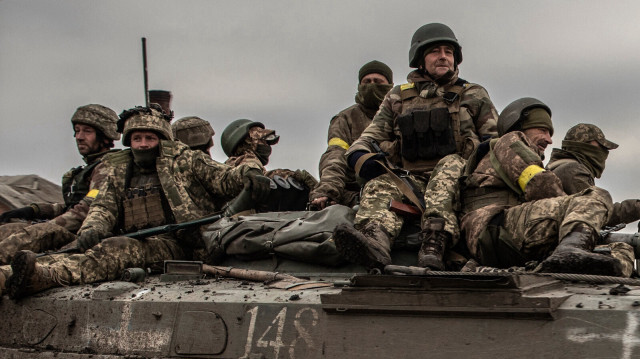
‘We need another peace conference, and Russia must then be at table; that is the task that we now have to tackle,' Olaf Scholz tells parliament in Berlin
German Chancellor Olaf Scholz on Wednesday said that the time has come to look at peaceful ways of ending the war in Ukraine.
“And I say again, now is the moment, now is the time when we have to explore what possibilities arise, and it is right when the Ukrainian president says, and I will repeat this again, we need another peace conference, and Russia must then be at the table; that is the task that we now have to tackle,” Scholz said in his speech to the parliament in Berlin.
“We will do everything we can to ensure that we have the opportunity to have peace, a fair peace that is not a dictated peace, not a surrender and which respects the integrity and sovereignty of Ukraine as an invaded country,” he added.
On Sunday, Scholz expressed support for inviting Russia to an international peace conference to end the war in Ukraine.
He told public broadcaster ZDF that during his recent meeting with Ukrainian President Volodymyr Zelenskyy, they discussed the latest developments, as well as prospects for a new peace conference to end the war.
“I think this is the moment when we have to discuss how we can get out of this war situation, and achieve peace more quickly than what it seems at the moment,” Scholz said.
“There will definitely be another peace conference, and President Volodymyr Zelenskyy and I agree that it must also be the one that would include Russia,” the German chancellor added.
Meanwhile, Scholz vowed again to crack down hard on illegal migration in his country.
“We have now organized such a deportation flight to Afghanistan and I can tell you that we will have more and will continue to do so. We will also carry out again deportations of criminals to Afghanistan and Syria,” he said.
Germany's left-liberal coalition government came under growing pressure to curb irregular migration after a stabbing attack in the western city of Solingen last month, in which three people were killed and eight others were injured by a rejected Syrian asylum seeker.
Authorities have said the suspect came to Germany in 2022 but did not qualify for refugee status in the country. He was supposed to be deported last year to Bulgaria, the first country he entered in the EU. The Daesh/ISIS terrorist group claimed responsibility for the attack.
Germany, which is Europe's largest economy, remains a top destination for irregular migrants and asylum seekers arriving in the EU. Last year, German authorities registered 266,224 cases of illegal entry and residence. Many of the irregular migrants were asylum seekers from Syria and Afghanistan.

